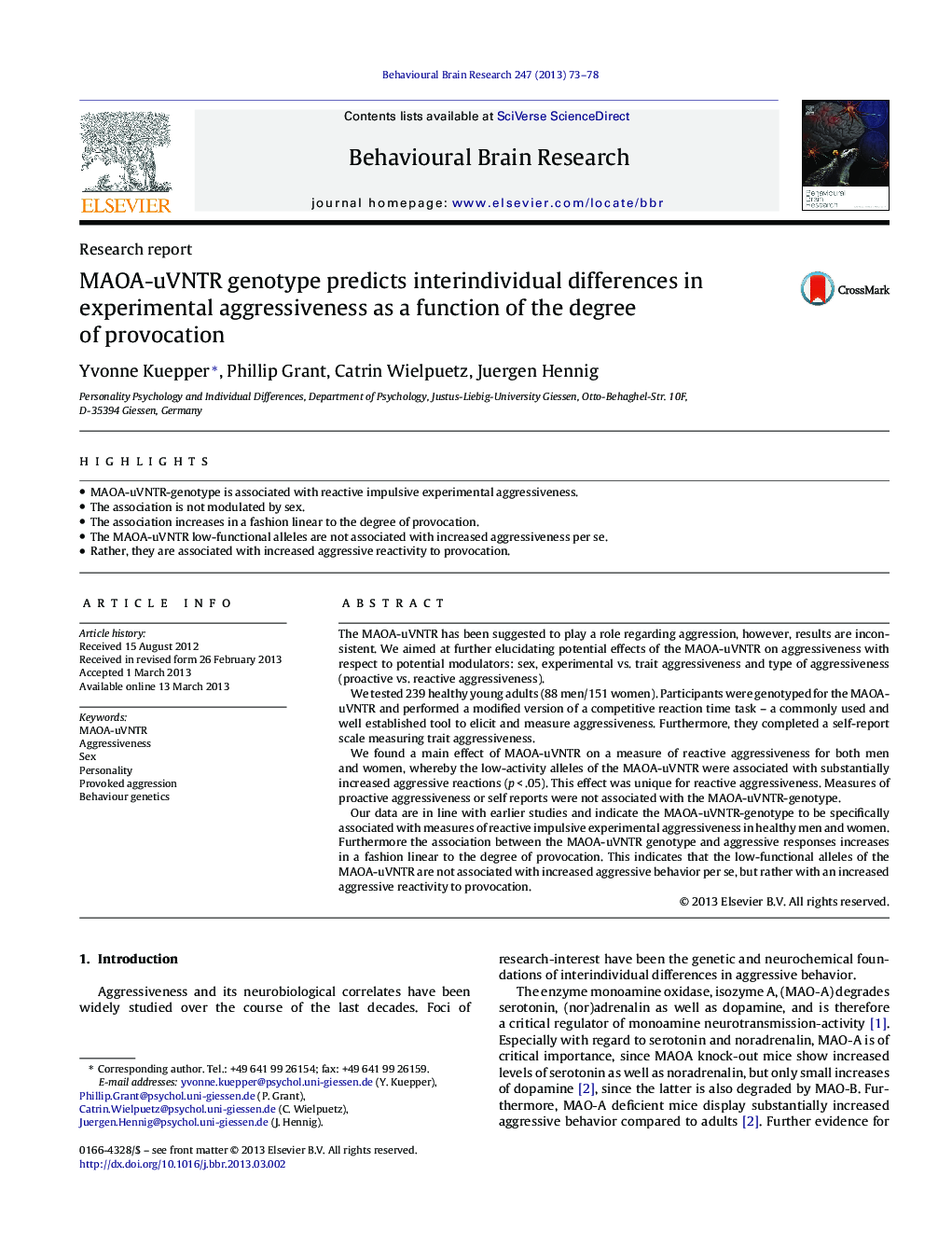| کد مقاله | کد نشریه | سال انتشار | مقاله انگلیسی | نسخه تمام متن |
|---|---|---|---|---|
| 4312669 | 1612985 | 2013 | 6 صفحه PDF | دانلود رایگان |

• MAOA-uVNTR-genotype is associated with reactive impulsive experimental aggressiveness.
• The association is not modulated by sex.
• The association increases in a fashion linear to the degree of provocation.
• The MAOA-uVNTR low-functional alleles are not associated with increased aggressiveness per se.
• Rather, they are associated with increased aggressive reactivity to provocation.
The MAOA-uVNTR has been suggested to play a role regarding aggression, however, results are inconsistent. We aimed at further elucidating potential effects of the MAOA-uVNTR on aggressiveness with respect to potential modulators: sex, experimental vs. trait aggressiveness and type of aggressiveness (proactive vs. reactive aggressiveness).We tested 239 healthy young adults (88 men/151 women). Participants were genotyped for the MAOA-uVNTR and performed a modified version of a competitive reaction time task – a commonly used and well established tool to elicit and measure aggressiveness. Furthermore, they completed a self-report scale measuring trait aggressiveness.We found a main effect of MAOA-uVNTR on a measure of reactive aggressiveness for both men and women, whereby the low-activity alleles of the MAOA-uVNTR were associated with substantially increased aggressive reactions (p < .05). This effect was unique for reactive aggressiveness. Measures of proactive aggressiveness or self reports were not associated with the MAOA-uVNTR-genotype.Our data are in line with earlier studies and indicate the MAOA-uVNTR-genotype to be specifically associated with measures of reactive impulsive experimental aggressiveness in healthy men and women. Furthermore the association between the MAOA-uVNTR genotype and aggressive responses increases in a fashion linear to the degree of provocation. This indicates that the low-functional alleles of the MAOA-uVNTR are not associated with increased aggressive behavior per se, but rather with an increased aggressive reactivity to provocation.
Journal: Behavioural Brain Research - Volume 247, 15 June 2013, Pages 73–78